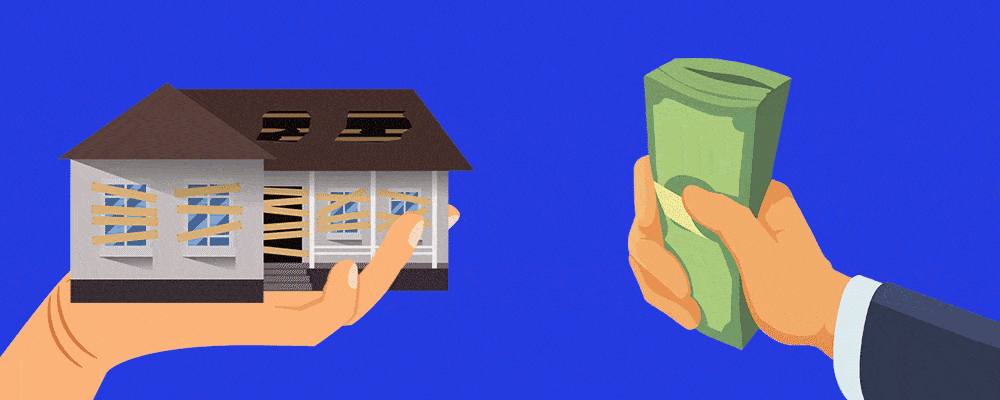Rental Property Investing: Part 1
Market Meditations | June 21, 2021

? Advantages of Rental Property Investing
- Purchasing with leverage. You don’t need $200,000 in cash to buy a property that costs $200,000. When investing in real estate, it’s fairly simple to borrow someone else’s money so that you can get started earlier and so that you can increase the returns on your capital. Mortgages tend to be cheaper than other debt so it’s cheap leverage.
- Hustle for greater returns. You can leverage your time and abilities to increase your success. For instance, by restoring and improving a property yourself (see ‘Forced Appreciation’ below), by networking to find better deals on mortgages or simply spending more time to find the greatest properties.
- Insider trading is legal. In the stock market, it’s illegal to use knowledge that the rest of the investing community doesn’t have access to. When investing in real estate, you are encouraged to take advantage of such information. With stocks and shares everyone has the same information so it can be difficult to get an edge. There is no data in the same vein for property so if you put the time in you can gain an information advantage.
- Multiple ways to profit. 4 different ways which we will discuss in the next section.
- Not having to be present to make money. You’ll be generating passive income in so far as your property could increase in value while you are sleeping or searching the web for new pepe memes.
- Inflation hedge. Housing has typically been a hedge against inflation and so it can be complimentary in a portfolio where other asset allocations are sensitive to inflation.
? 4 Ways to Profit
1️⃣ Appreciation. Increase in value of an asset over time. If you can sell your house for $200,000 today and you bought it for $100,000 back in 1992, your house has appreciated 100% in value. (Note the timeframe of the investment, this will be one of the topics of discussion in Part 2). There are two types of appreciation. Natural Appreciation comes from inflation and scarcity, and Forced Appreciation comes from your efforts to improve the property.
2️⃣ Cash flow. Cash flow = All Income – All Expenses. In this case, how much money you have left from tenant payments after paying all the expenses on the property (this includes any interest on your loan).
3️⃣ Tax Savings. All tax discussions and implications are country specific. In most places, there are tax benefits for being a rental property owner.
4️⃣ Loan Paydown. A conventional loan repayment consists of principal and interest. Money spent on principal increases your equity in the property (and therefore your stake in the property). Towards the final years of the mortgage repayment, almost 100% will go towards principal.
? Finding Good Deals
A good rule of thumb is that you want your cash flow to be positive (see explanation of cash flow above). This requires a deeper understanding of the components:
- Income is determined by the ‘fair market rent’ which is determined by factors such as location, number of bedrooms, quality and the size of the property. Establish fair market rent by finding evidence from similar properties from nearby letting agents (focusing on where you can see a transaction has been completed). Sources like Airbnb often have a premium over standard market rates.
- Expenses include Operating Expenses (taxes, interest, insurance, vacancy, repairs, water, garbage, heat, electricity etc.) The best way to determine these expenses is to call people (such as the local electricity company). Then there are Capital Expenses for instance, getting a new paint job, roof, windows, appliances etc.
✅ Putting It Altogether
You’ve asked local agents and determined that your property generates $1,500 in income per month. You’ve made a few calls and established expenses are $1,200 per month. Cash flow = Income – Expenses = $1,500 – $1,200 = $300 per month or $3,600 per year. Don’t forget how much you paid for your property. Suppose your deposit was $60,000.
Your Cash on Cash Return on Investment (COCROI) is $3,600/$60,000 = 6% per year. The beauty of calculating your return per year is that it allows for comparisons. An index fund in the stock market could generate about 7-10% per year. And so, 6% doesn’t look great. You’ll want as high a COCROI as possible.
Finding the right property can be difficult. Beyond a high COCROI, there’s a few known tips and tricks:
- Find problems that are easy to fix. Did you know a house with a bad smell is one of the easiest to fix but drives away 99% of the competition? If you’re willing to hustle, then the bad smell becomes the smell of money. The same is true for bad roofs, messy gardens or poor interior design (a wall between a kitchen and living room can be knocked down to create a more appealing open space plan).
- Place competitive offers. Another rule of the road is that if more than 1 in 10 of your offers get accepted, you can know you are offering too much. With a bit of patience, you’ll likely get a better price for a property.
- A hidden third bedroom. Turning a property from a two bedroom into a three bedroom can immediately increase its fair market rent. Look for large storage rooms or big bedrooms that can be split in two (for example).
- Up and coming areas. Looking for “up and coming areas” where young professionals are flocking / gentrification is occurring can be a good way to find an area where growth will outstrip the regional average.
⚠️ Next Steps
We cannot just consider the advantages. Join us for Part 2 on Wednesday, where we will discuss disadvantages and our approach here at Market Meditations to rental and crypto portfolios. Only then will you truly be ready to consider rental property investing.

